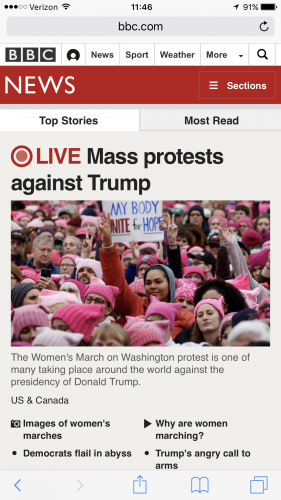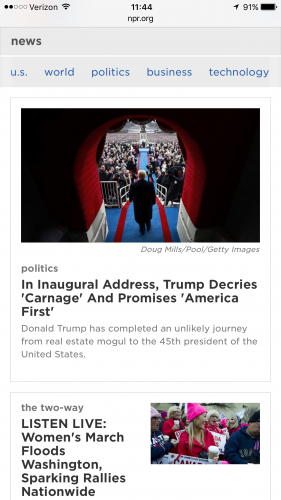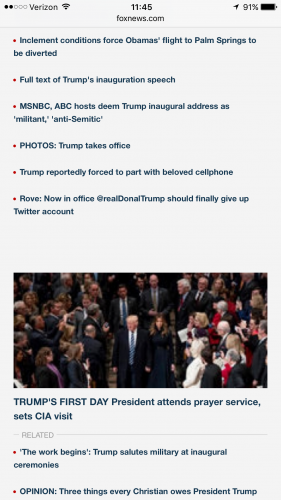Category: Longform
You are viewing all posts from this category, beginning with the most recent.
Finished reading: a quick compendium
Because I’ve been lazy and not keeping up:
The Big Screen: The Story of the Movies - and What They Have Done to Us by David Thomson An extensive trip through the history of filmmaking. I’m interested in movies far more than I get the opportunity to watch them, so this was an interesting read and gives me lots of movie watching gaps to fill in.
City of Dreams: The 400-Year Epic History of Immigrant New York by Tyler Anbinder This came on the tail of visiting Manhattan for a week for work. A really fascinating read starting with the first white settlers in New York and carrying on through the late 20th century.
The Believer by Joakim Zander A thriller novel that hits a little too close to home, including a wanna-be jihadist and shady government forces at work.
Last Year by Robert Charles Wilson A time-travel novel in which the present day has a gate into one possible past, but only to a specific time the 1870s. More thoughtful than I anticipated.
Dune by Frank Herbert Caught up with a classic I’d never read. Really enjoyed it. Now I suppose I’ll get sucked into the whole series.
Another view of 'love of neighbor'
I was catching up on my backlog of On Being podcasts and came across a fascinating discussion with writer Alain de Botton. de Botton is an atheist, but provided a description of the idea of love of fellow citizen (in my words, “neighbor”) that was insightful to me.
MR. DE BOTTON: …I think you’re onto something huge and rather counterintuitive because we associate the word “love” with private life. We don’t associate it with life in the republic, with civil society. But I think that a functioning society requires two things that, again, just don’t sound very normal, but they require love and politeness. And by “love” I mean a capacity to enter imaginatively into the minds of people with whom you don’t immediately agree, and to look for the more charitable explanations for behavior which doesn’t appeal to you and which could seem plain wrong, not just to chuck them immediately in prison or to hold them up in front of a law court but to…
MS. TIPPETT: Or just tell them how stupid they are, right?
MR. DE BOTTON: Right. Exactly. We’re permanently — all sides are attempting to show how stupid every other side is. And the other thing, of course, is politeness, which is an attempt not necessarily to say everything, to understand that there is a role for private feelings, which if they were to emerge, would do damage to everyone concerned. But we’ve got this culture of kind of self-disclosure. And as I say, it spills out into politics as well. The same dynamic goes on of, like, “If I’m not telling you exactly what I think, then I may develop a twitch or an illness from not expunging my feelings.” To which I would say, “No, you’re not. You’re preserving the peace and the good nature of the republic, and it’s absolutely what you should be doing.”
I really like this definition of love of neighbor that way - to work to understand them by giving them the benefit of the doubt, to look for the most charitable explanation for their position. We as Christians could take that idea to heart.
Finished reading: Now: The Physics of Time by Richard A. Muller
Another random library selection, and a nice change of pace from history and theology. In Now, Cal Berkeley professor Richard Muller sets out to provide a layman’s-level discussion of the nature of time and how the domain of physics interacts with and helps explain it.
Muller provides an engaging discussion about relativistic time dilation, the big bang, quantum effects and “spooky action at a distance”, and his own thoughts about what it is that causes time to move only forward. It’s not entirely for the faint of heart, but he at least is good enough to leave his derivation of equations into appendices rather than embedding them within the body text. The Goodreads reviews of the book seem to be a bunch of physics nerds giving the author flack for his approach, but to this engineering nerd who isn’t deep into physics, it was just fine.
Finished reading: Instrumental: A memoir of Madness, Medication, and Music by James Rhodes
I’ll confess I’d never heard of James Rhodes prior to picking this book up at the library. Turns out he’s about my age, and a British classical pianist who has had some amount of popular culture impact in Britain trying to make classical music less culturally stuffy and more accessible to the masses.
Instrumental isn’t nearly so much about music as it is about a man trying to come to grips with the effects of some horrifying abuse he underwent as a young boy in primary school. I’ve never read an account that so directly describes the horror and brokenness that an abuse victim can feel. One of Rhodes’ escapes is music, but he vividly describes others that are much less beautiful and much more self-destructive.
Rhodes does mention a couple handfuls of favorite classical pieces through the book, which someone has already arranged into a convenient Spotify playlist.
Instrumental is a worthwhile read but not for the faint of heart.
--
Finished reading: A Wretched and Precarious Situation by David Welky
Found this one on the New Books shelf at the library and figured hey, why not? Welky tells here the story of a handful of Arctic explorers who followed up on Robert Peary’s claim to have seen an Arctic continent he called “Crocker Land” (named after one of his financial sponsors).
Want to trek for multiple years living off pemmican, hardtack, and the internal organs of whatever bears and musk oxen you can hunt? Lose your toes to frostbite? Go (in some cases, at least) more than a bit loony? Early 20th century Arctic exploration might be for you!
Welky’s writing is engaging and the story is an adventurous one. After reading it, I think it’ll be at least a week before I stop feeling cold.
--
A Wretched and Precarious Situation: In Search of the Last Arctic Frontier
Bullet points for a Wednesday afternoon
- I’m glad I signed up for the 0530 kickboxing class, but it’d really help if I’d go to bed earlier at night. Short sleep + workouts = ouch.
- Also = zzzzzz. The folks at the coffee stand know my order (large Americano) now and have it going when I walk up.
- Not so great: realizing 45 minutes in that what you thought was a one-hour Webex meeting is actually a two-hour Webex meeting.
- Better: having said two-hour Webex meeting only take an hour.
- My diet that’s supposed to be accompanying my kickboxing class isn’t helped when my wife buys two-pound cinnamon rolls from the local bakery.
- I’ve been busy enough lately that I started drafting this on Tuesday morning and just finally published it on Wednesday afternoon.
- On balance, I’m not really complaining about the cinnamon roll.
Finished reading: The Whistler by John Grisham
Because sometimes you need some thoughtless entertainment. Even at that, Grisham is just coasting on his reputation at this point. Meh.
--
Finished Reading: Reclaiming Hope by Michael Wear
The buzz on this one had been going around Twitter for a while, so I was glad to pick up a copy and read. Michael Wear is a young guy who, not even out of college, worked as the White House lead for evangelical outreach during President Obama’s first term. Reclaiming Hope is part memoir of those years and partly Wear’s suggestions for how to repair political engagement with religion.
On the whole, I think Wear did a good job of identifying points where both the right and left failed in opportunities to find common ground that could’ve made legitimate progress on issues important to religious conservatives. However, I think his admiration for President Obama causes him to pull his punches in the second half of the book.
In the first half of the book, Wear reveals himself as something of an Obama fan boy as he details all of the President’s speeches that reveal the depth to his personal faith. (I’m not disputing these - I have great admiration for Obama’s faith - but the tone is pretty fawning.) When Wear starts assigning blame in the second half of the book, though, the blame is never to Obama directly, but always to the “administration” or the “White House”.
Overall, it’s a good little memoir, and Wear has some good thoughts to share about how we might find progress forward on issues significant to people of faith.
--
Reclaiming Hope: Lessons Learned in the Obama White House About the Future of Faith in America
Finished reading: A People's History of the United States by Howard Zinn
History, it is often said, is written by the winners. Zinn, though, undertakes to tell a history of America from the perspective of the losers, the poor, the oppressed. Think the arrival of the explorers from the perspective of the Native Americans. The colonial and early US history from the perspective of the slaves. The early 1900s from the perspective of poor workers banding together into labor unions.
Zinn is not trying to be even-handed here, but this volume would serve as an excellent companion to any more traditional history of the United States. It also serves as a good reminder that while things may seem bleak in our current political era, they have been much worse, and our country has withstood far more.
--
Where you get your news matters
As I sit and write today we are in day two of Donald Trump’s presidency. Across the United States and around the world, hundreds of thousands of people are marching in protest of Trump’s disregard for women and minorities. It’s likely that the number of attendees at the marches in Washington, DC, will far outnumber the crowds at Trump’s inauguration yesterday.
I’ve seen a broad number of first-hand reports from those marches all morning via Twitter. What astonished me, though, was seeing the broad difference in coverage between various online news sources. Here’s what I found. I screen captured these websites around 11:30 AM central time.
ABC News
ABC’s top story is the march, with a photo. It’s followed by headlines about President Trump’s visit to the National Cathedral, a tornado in Missisippi, and an avalanche in Italy. A fair spread of news for the first screen.

BBC News
Again the lead is the marches, with special note taken that there are protests around the world, not just in DC. They quickly link to analysis pieces. “Why are the women marching?” “Trump’s angry call to arms.” And who can resist the delicious headline “Democrats flail in abyss”?

NPR News
NPR leads with the themes of President Trump’s inaugural message: “American carnage” and “America First”. Second comes the marches.

CNN
CNN is all about the marches on the first screen, including live video coverage and individual stories apparently profiling marchers. Just below the digital fold is a section titled “The Start of the Trump Era”.

Fox News
Then there’s Fox News. Screen one: Trump signs an executive order to try to gut the Affordable Care Act. Trump’s “new vision” for America. I was curious, so I kept scrolling.
Screen two: Obama’s flight to a vacation diverted due to bad weather. Full text of Trump’s inauguration speech. Other news sites deem Trump’s speech offensive. Trump has to part with “beloved cellphone”. Trump attends prayer service. “Three Things Every Christian Owes Donald Trump”. (Well, OK, then.)
Let’s keep going.
Screen three: “Food Network Star implies Trump plagiarized Inauguration Cake”. (Take a look at the side-by-side pictures. Totally plagiarized. But I digress.) And there it is! Finally! One line! “Hundreds of thousands of women march on Washington”. No photo. But a big photo of tornado damage in Mississippi and one of a bust of Winston Churchill that Trump has returned to the Oval Office.



Now friends, the disparity in coverage is, I hope, so obvious that I don’t even really need to point it out. What this highlights, though is that how and where we get our news matters.
Every reporter and news organization has some sort of bias. We will never find a source that is completely neutral. There have been Washington marches in the past (e.g. the Right-to-Life march every year) that CNN will ignore and Fox News will headline.
What we can learn to do, though, is to read widely and to become aware of those biases. If your only source for news is Fox, I beg you, watch some CNN as well. Or read the New York Times. If your only source is MSNBC or NPR, read some Fox for balance.
Facts are facts, but perspectives are tricky things. For us to navigate the upcoming years as people of good will we must work diligently to learn the facts, and to recognize perspective and bias in ourselves and those around us.